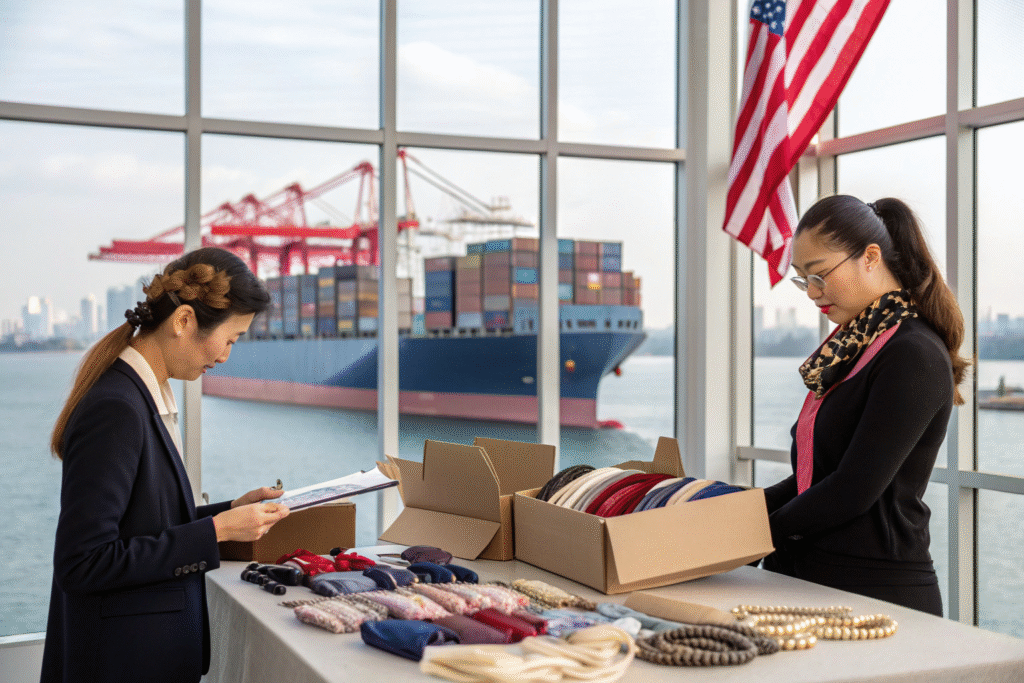When sourcing fashion hair accessories from China, the most common question that buyers ask is how to balance control, cost, and risk in international trade. Many retailers, wholesalers, and e-commerce entrepreneurs face unexpected challenges during shipping and customs clearance. Without the right Incoterms, the whole process can become slow, expensive, and risky.
The best Incoterms for minimizing risks with Chinese suppliers are usually FOB, FCA, CIF, and DDP, depending on your logistics capacity and risk tolerance. FOB allows buyers to control freight and insurance while the supplier handles export clearance. FCA is useful for multimodal shipments with more flexibility. CIF offers convenience for new buyers, and DDP provides the simplest option by shifting nearly all responsibilities to the supplier. Choosing the right one depends on your business model, experience, and ability to manage logistics.
Selecting the wrong Incoterm can create costly problems—hidden fees, shipment delays, or even cargo losses without proper insurance. That is why it is essential to understand the strengths and weaknesses of each option. In the following sections, I will share detailed insights that help you make informed sourcing decisions when buying hair accessories from China.
Why Is FOB the Most Popular Incoterm?
Importers of hair accessories often struggle with hidden shipping fees, unclear responsibilities, and unreliable freight schedules. This creates frustration, especially for small to medium-sized fashion brands and e-commerce sellers who must control costs while protecting timelines.
FOB is the most popular Incoterm for Chinese exports because it allows suppliers to handle export clearance and port delivery, while buyers take control once goods are loaded on the vessel. This balance minimizes unexpected costs and gives buyers freedom to choose carriers and insurance providers.
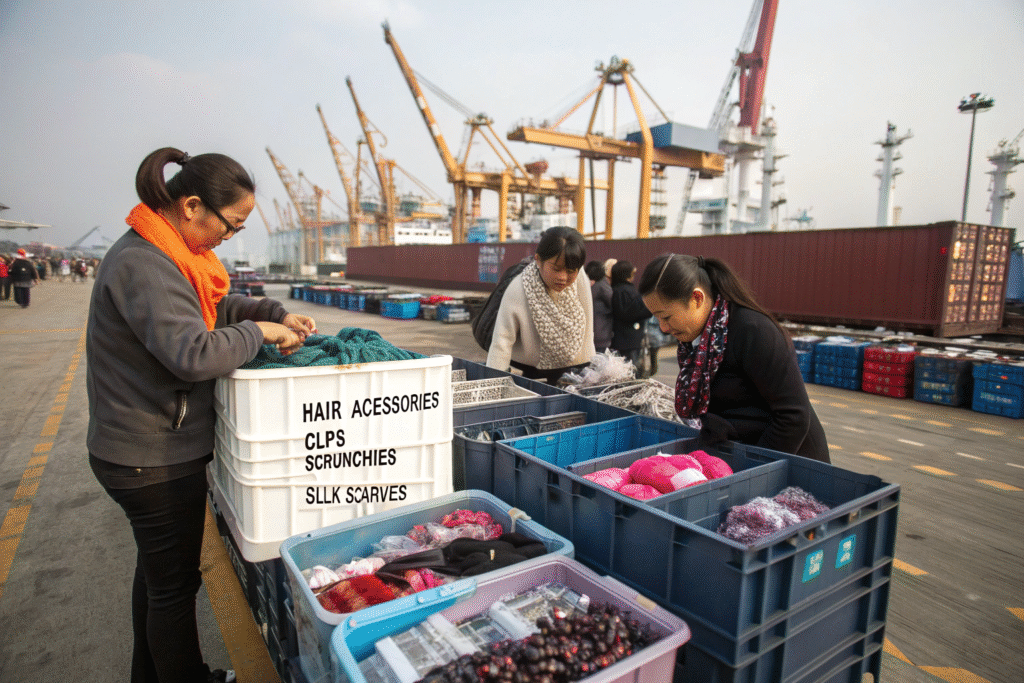
For buyers of fashion accessories, FOB offers the right mix of security and control. The supplier is responsible for inland transportation in China and customs clearance, which prevents compliance mistakes. Once the goods are onboard, the buyer can work directly with international freight forwarders, ensuring cost transparency. This approach is particularly effective for bulk shipments of headbands, claw clips, and pearl hairpins destined for markets in the US and Europe.
How Does FOB Protect Against Hidden Fees?
FOB is effective because it prevents suppliers from overcharging buyers with inflated freight invoices. Buyers can directly negotiate shipping rates with international forwarders like Maersk or MSC, ensuring they get competitive pricing. In addition, choosing FOB means buyers avoid inflated local charges at destination ports, which are often a risk under CIF.
Another advantage is transparency. Buyers receive direct documentation from freight partners, reducing risks of delays or disputes. For retailers importing thousands of units of claw clips or headscarves, this is a critical safeguard.
Why Is FOB Ideal for Experienced Buyers?
FOB works best for businesses that have some knowledge of international logistics. Using reliable forwarders such as Freightos allows buyers to control schedules, insurance, and customs declarations. For established wholesalers, this creates flexibility to manage seasonal demands—for example, ordering large batches of scrunchies before back-to-school season or veils before wedding peaks. By choosing FOB, buyers can scale smoothly without giving up control.
When Should Buyers Use FCA Instead of FOB?
Sometimes buyers face challenges when suppliers are located inland, far from major ports. Transporting goods to the loading dock under FOB can create delays and higher costs. This is when FCA becomes more attractive.
FCA is recommended when buyers want suppliers to deliver goods to a nominated freight forwarder or terminal while still handling export clearance. It is often used for multimodal shipping and containerized cargo.
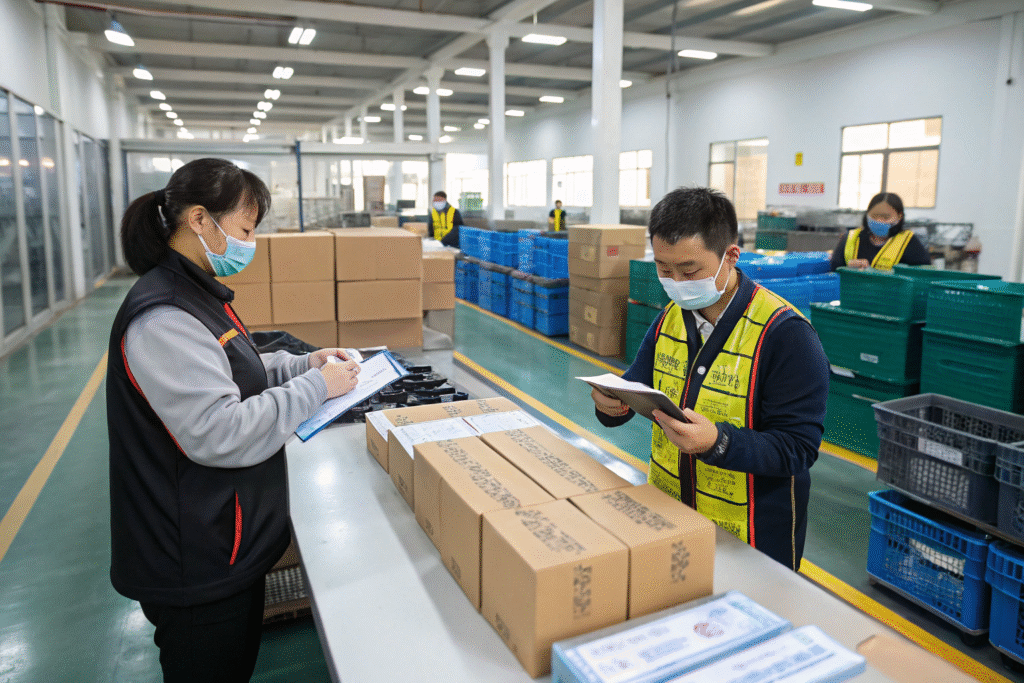
In the hair accessory trade, FCA is practical when sourcing from suppliers located inland in provinces like Zhejiang or Jiangsu. Suppliers can deliver the shipment to a forwarder’s warehouse or airport terminal, ensuring smooth handover and accurate documentation. Buyers can then manage international transportation with full visibility.
Why Is FCA Useful for Container Shipments?
When buyers order mixed containers filled with different products—such as pearl hairpins, scarves, and bow clips—FCA makes it easier to consolidate at a freight forwarder’s warehouse. Unlike FOB, which requires delivery to the port, FCA gives flexibility to choose any designated location. Many international logistics companies, like DHL Global Forwarding and Kuehne+Nagel, recommend FCA for complex supply chains.
Does FCA Reduce Risk of Delays?
Yes. With FCA, buyers avoid port congestion and logistical confusion by shifting the delivery point earlier in the supply chain. Since the supplier delivers goods directly to the buyer’s chosen forwarder, it reduces risks of missed vessel schedules. For seasonal products like silk scarves or trendy headwraps, FCA helps ensure on-time delivery to retail markets.
Is CIF Convenient for First-Time Buyers?
For many new entrepreneurs in the fashion accessory industry, logistics seem overwhelming. They prefer suppliers to manage most of the shipping process. CIF is often the starting point for such buyers.
CIF (Cost, Insurance, and Freight) allows the supplier to handle transportation and insurance to the buyer’s port of destination. Risk transfers once goods are loaded, but buyers have peace of mind knowing that freight and insurance are pre-arranged.
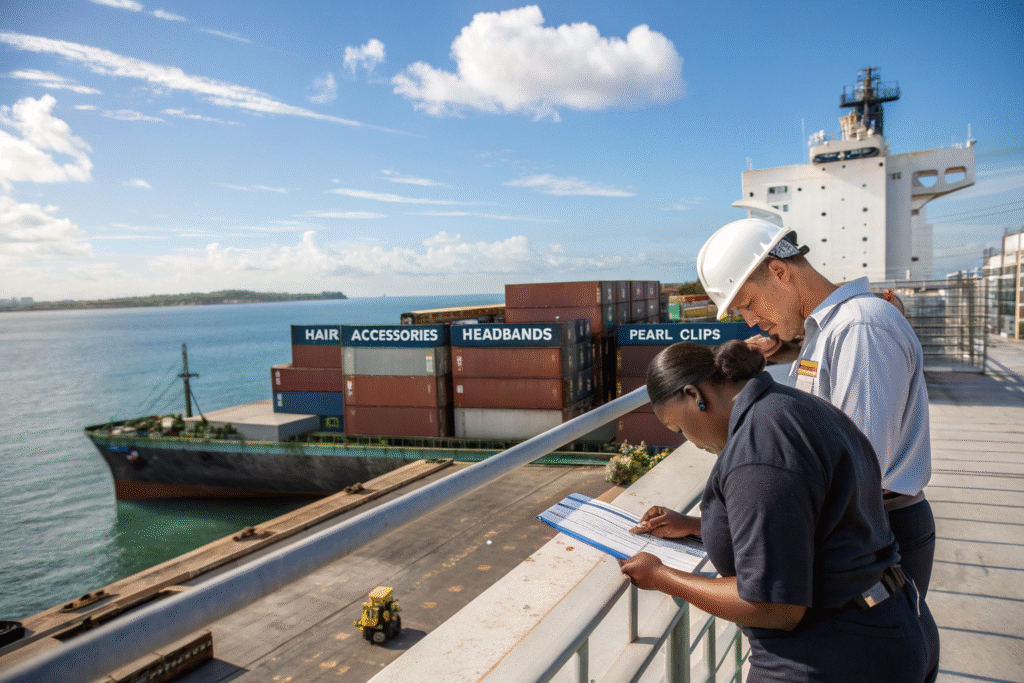
CIF is popular among first-time importers who buy smaller batches of headbands, bobby pins, or scrunchies. Although it comes with higher costs, it provides simplicity, especially for those who lack a freight forwarder.
What Are the Risks of Relying on CIF?
The main risk is lack of control. Suppliers usually choose freight carriers, which can result in higher costs and limited visibility. Importers may face unexpected terminal charges at destination ports. For example, e-commerce sellers bringing in claw clips may find hidden fees at US ports that affect profit margins. Resources like Investopedia highlight these risks.
Is CIF the Best for Small E-Commerce Startups?
For startups with limited logistics knowledge, CIF provides a stepping stone. Platforms such as Alibaba.com often encourage CIF deals for beginner importers. However, as businesses grow, most shift toward FOB or FCA for greater control and cost efficiency. That transition helps ensure stable long-term operations.
When Does DDP Make Sense for Buyers?
Some buyers prefer maximum convenience, even if it comes at a higher price. DDP offers exactly that.
Under DDP (Delivered Duty Paid), the supplier is responsible for delivering goods to the buyer’s door, handling shipping, customs clearance, and import duties. Buyers simply receive their products with minimal involvement.
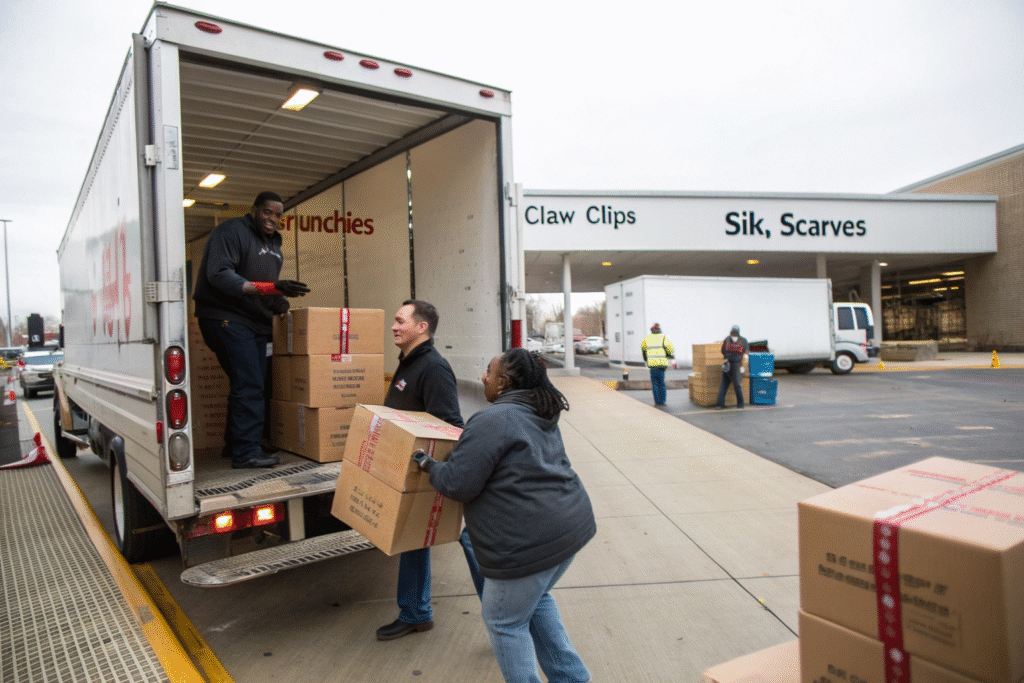
For large retailers and gift shops that import hair accessories in bulk, DDP ensures smooth door-to-door delivery. It eliminates the need to manage customs declarations or import taxes. Suppliers take full responsibility until the goods arrive at the buyer’s warehouse.
Why Is DDP Attractive to Retail Chains?
For supermarkets or big-box retailers, DDP reduces administrative burden. By letting suppliers manage import taxes and documentation, buyers focus entirely on sales. Logistics providers such as FedEx Trade Networks highlight the value of DDP for simplifying complex shipments.
What Are the Drawbacks of DDP?
The challenge is cost and reliability. If the supplier miscalculates import duties or local taxes, delays may occur. Buyers may also face hidden costs passed on by the supplier. According to Wikipedia, this is one of the major risks of DDP. For long-term partnerships, it is essential to ensure suppliers are experienced in handling local import regulations.
Conclusion
Choosing the right Incoterm is one of the most important decisions when importing fashion hair accessories from China. FOB and FCA provide the best balance of risk and control for experienced buyers, while CIF and DDP simplify processes for beginners or those seeking convenience. Each option has its strengths, but understanding them clearly is the only way to avoid costly mistakes.
If you are ready to secure your supply chain with trusted Chinese manufacturers, we welcome you to work with us at Shanghai Fumao. Our Business Director Elaine can guide you through Incoterm selection, shipping strategies, and bulk order management. Contact her at elaine@fumaoclothing.com to start producing your own customized line of hair accessories with confidence.

